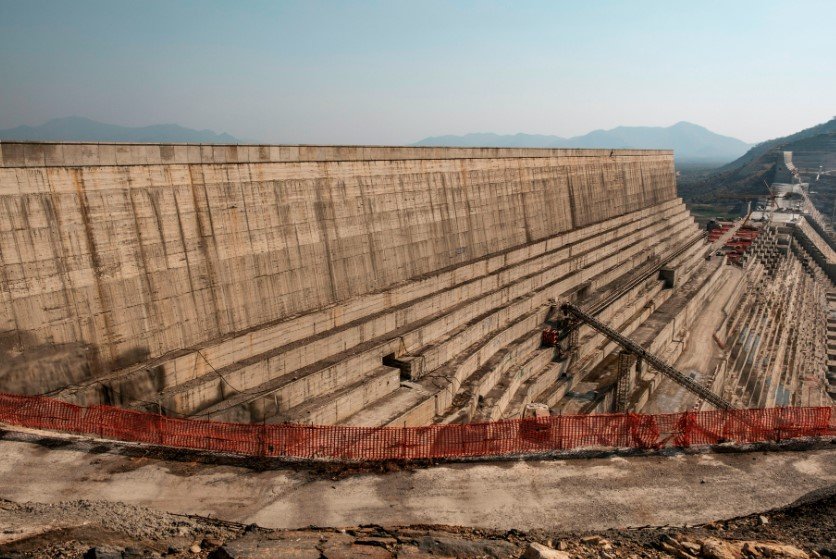Egypt has ramped up pressure on Ethiopia over the Grand Ethiopian Renaissance Dam, with Foreign Minister Badr Abdelatty stating that Cairo will pursue measures under international law if the project harms its water supply. This warning comes amid stalled talks and Ethiopia’s plans to inaugurate the massive hydropower facility in September 2025, heightening fears of a regional water crisis.
Escalating Tensions in the Nile Basin
The dispute centers on the Blue Nile, where Ethiopia built the dam to boost its energy needs. Egypt relies on the Nile for over 90 percent of its fresh water, serving a population of more than 100 million people.
Recent statements from Egyptian leaders underscore the urgency. President Abdel Fattah El-Sisi said Egypt will not accept threats to its water security, linking the issue to broader political pressures.
Ethiopia views the dam as vital for development, aiming to generate up to 6,450 megawatts of electricity. Officials in Addis Ababa argue it poses no harm if managed cooperatively.
The conflict has drawn international attention, with the United States weighing in through comments by President Donald Trump, who expressed support for Egypt’s position.
Key Milestones in the GERD Project
Construction of the Grand Ethiopian Renaissance Dam began in 2011, with Ethiopia funding the roughly $5 billion project through domestic bonds and public contributions.
The dam started producing power in February 2022, and Prime Minister Abiy Ahmed announced its completion in July 2025.

Inauguration is set for September 2025, marking it as Africa’s largest hydroelectric facility.
Ethiopia has filled the reservoir in stages, with the fifth filling completed recently, despite objections from downstream nations.
Sudan, caught in the middle, shares concerns about water flow but also sees potential benefits from regulated flooding.
Egypt’s Concerns and Legal Stance
Egypt fears reduced water flow could devastate agriculture and cause shortages, especially as the United Nations predicts the country might face a water crisis by 2025.
Foreign Minister Abdelatty described negotiations as deadlocked, vowing to monitor operations and act if needed.
Egypt insists on a binding agreement for filling and operating the dam, citing international water laws like the 1997 UN Convention on shared rivers.
Past talks, including those mediated by the African Union, have failed to yield results.
President El-Sisi hinted at external pressures, suggesting the dam issue ties into wider geopolitical maneuvers.
Here are some core demands from Egypt in the dispute:
- Guaranteed annual water share from the Nile.
- Advance notice on dam filling schedules.
- Mechanisms to resolve future disagreements.
Ethiopia’s Perspective and Defenses
Ethiopia maintains the dam is a sovereign right, essential for electrifying millions in a nation where over half the population lacks reliable power.
Prime Minister Abiy Ahmed invited Egypt and Sudan to the inauguration, framing it as a step toward regional cooperation.
Officials accuse Egypt of trying to obstruct the launch through diplomatic means.
Studies backed by Ethiopia show the dam could benefit all parties by storing water during wet seasons and releasing it in dry periods.
The project aligns with Ethiopia’s green energy goals, reducing reliance on fossil fuels.
International Involvement and Broader Implications
The United States has played a role, with President Trump’s recent remarks urging a quick resolution while leaning toward Egypt.
This echoes his 2020 comments, which sparked outrage in Ethiopia for suggesting military action.
Other global players, including the European Union and the United Nations, call for dialogue to avoid conflict.
The dispute highlights water security challenges in Africa, where climate change and population growth strain resources.
A potential escalation could affect food security, with Egypt’s farms producing wheat and other staples for the region.
| Aspect | Egypt’s View | Ethiopia’s View |
|---|---|---|
| Water Impact | Fears major shortages and agricultural loss | Claims minimal downstream effects with proper management |
| Legal Basis | Demands binding international agreement | Asserts right to develop resources without veto |
| Economic Benefits | Sees threat to Nile-dependent economy | Expects boost in energy exports and industrialization |
| Timeline | Opposes unilateral filling | Proceeds with September 2025 inauguration |
Potential Paths Forward
Experts suggest renewed mediation, possibly through the African Union or United Nations, to forge a compromise.
Technical solutions, like data-sharing on water levels, could build trust.
Both nations have military capabilities, but analysts warn conflict would harm the entire region.
Public sentiment in Ethiopia celebrates the dam as a symbol of independence, while Egyptians view it as an existential risk.
As the inauguration approaches, diplomatic efforts intensify to prevent a breakdown.
What do you think about this ongoing dispute? Share your thoughts in the comments below, and spread the word by sharing this article with others interested in global water issues.
